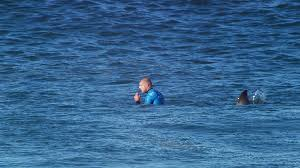How does this affect shark conservation?
The behavioural psychology principle of operant conditioning explains how consequences influence behaviours. For surfers who have encountered a shark but have not been bitten or had a close call, this behaviour of surfing with sharks (and not being afraid) is being reinforced.
Perhaps this lower tingkat of fear is influenced by a consistent personality trait. Research has found people high in sensation-seeking, which is the tendency for people to pursue thrill-seeking experiences, view the risks of sharks as lower. It is plausible that many surfers are high on sensation-seeking, which may help explain why they perceive the risk of sharks to be low.
Post-rationalisation, or choice-support bias, is the tendency for people to ascribe positive attributes to a decision they have made, essentially to justify the decision. Surfers may downplay their fear of sharks to rationalise their decision to continue to surf, as their desire to surf is greater than their perceived risk of a shark bite.
How does this affect shark conservation?
Globally, it's estimated humans kill 100 million sharks each year. A quarter of all shark species are now threatened with extinction, so actions to proteksi them are important.
Given the general public's fear of sharks is a barrier to shark conservation, understanding surfers' shark fears (or lack thereof) gives us an important insight into fear and perception of risk. This will further our understanding of these complicated psychological faktors.
In the discussion of shark conservation, the many berkaitant grups include politicians, fishers, the media and scientists. But frequent ocean users such as surfers are often overlooked, despite being more likely to interact with sharks than others.
Giving this cohort a weighted voice in the discussion of shark manajemen and reducing the risks of shark bite will ensure a better, more logical balance between safety and conservation.


